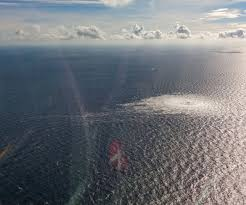In response to challenges posed by Polish truckers causing disruptions at the border, Ukraine is strategically turning its focus towards the Black Sea as an alternative route to invigorate and enhance its trade activities. This shift underscores the resilience and adaptability of nations in navigating impediments, emphasizing the significance of maritime routes in fostering economic growth amid regional obstacles.
The recent blockade by Polish truckers has prompted Ukraine to explore alternative avenues to maintain the momentum of its trade activities. As one of the primary transit routes for goods entering and exiting Ukraine, the disruption at the Polish border has necessitated a swift response to mitigate economic setbacks and ensure the uninterrupted flow of goods crucial for the nation’s economic well-being.
The Black Sea, with its strategic geographical positioning, emerges as a viable and strategic option for Ukraine to circumvent the challenges posed by the blockade. The utilization of maritime routes not only provides an alternative channel for trade but also demonstrates the nation’s ability to adapt to changing circumstances and seek innovative solutions to keep its economic engine running smoothly.
The blockade by Polish truckers highlights the vulnerability of overland transportation routes and the potential impact on the movement of goods. By strategically redirecting its focus towards the Black Sea, Ukraine aims to diversify its trade routes, thereby reducing its dependence on specific land-based pathways and enhancing the resilience of its logistics networks.
The Black Sea, nestled between Europe and Asia, offers a maritime gateway for Ukraine to strengthen its trade ties with various nations. By harnessing the potential of this waterway, Ukraine can not only ensure a more stable trade environment but also explore opportunities to expand its economic partnerships and diversify its export destinations.
This strategic shift underscores the interconnectedness of maritime trade and economic prosperity. The Black Sea, as a key maritime route, provides Ukraine with the advantage of accessibility to multiple markets and the flexibility to adapt to changing geopolitical scenarios. This move aligns with a broader global trend where nations are increasingly recognizing the importance of maritime routes for fostering economic resilience and sustaining trade activities.
Furthermore, the exploration of the Black Sea route is a testament to Ukraine’s strategic foresight and proactive measures in addressing challenges. By diversifying its trade routes, Ukraine not only mitigates the immediate impact of the Polish truckers’ blockade but also positions itself to capitalize on the long-term benefits of a well-balanced and adaptable trade infrastructure.
In conclusion, Ukraine’s response to the blockade by Polish truckers exemplifies the nation’s resilience and strategic acumen in overcoming challenges to its trade activities. The redirection of focus towards the Black Sea is a pragmatic move that not only ensures the continuity of economic activities but also underscores the importance of maritime routes in sustaining and enhancing global trade. As Ukraine explores new avenues for economic growth, the utilization of the Black Sea serves as a testament to the nation’s ability to navigate obstacles and chart a course towards a more diversified and robust trade landscape.








